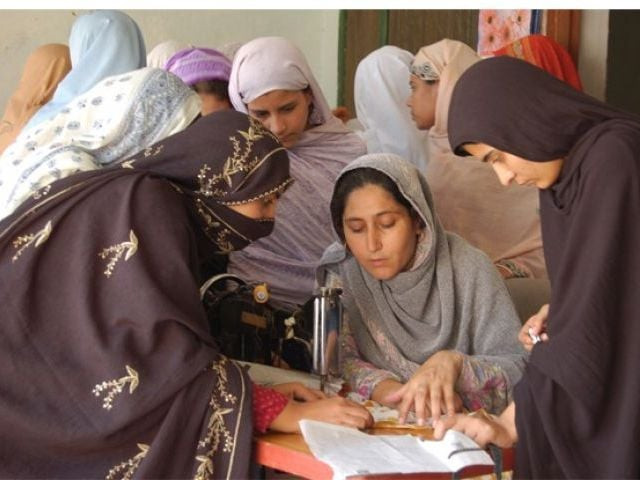Equal rights: Women’s exclusion from top governance slots alarming, says HRCP
Women head only seven out of Pakistan’s 111 foreign missions

Women head only seven out of Pakistan’s 111 foreign missions. PHOTO: www.ilo.org/
The Human Rights Commission of Pakistan (HRCP) on Saturday called for addressing the ‘near-complete exclusion’ of women from top governance positions in the country.
The commission said in a statement that even though women constituted half the national population, there were only two women members in the federal cabinet, compared to 27 men. In the provincial governments too, women constituted only six per cent of cabinet members: four ministers out of a total of 64 across all provinces were women, it said. Not a single chief minister or governor is a woman.
This state of affairs is not limited to elected or political offices but extends to senior positions in the administration and bureaucracy. Women head only seven out of Pakistan’s 111 foreign missions. Since the country’s creation, only one woman has served as governor of the State Bank of Pakistan.
Out of five public banks – National Bank of Pakistan, Bank of Khyber, Bank of Punjab, First Women’s Bank and Sindh Bank, only one (First Women’s Bank) is headed by a woman. Out of 71 public universities, only six have women vice-chancellors. Out of these, four head women-only universities.
The commission said a woman had never been Pakistan’s chief election commissioner and there were no female members of the election commission. “The examples of near-complete exclusion of women from top governance positions are far too numerous to be recounted here. This state of affairs in not a coincidence and demonstrates not just exclusion of women from important decision-making but also lack of effective measures to address under-representation of women in that respect,” the HRCP stated. The commission said that women continued to experience significant discrimination related to their participation in public and political life in most domains of the public sphere. “The reasons for the under-representation of women are multifaceted and complex.”
Published in The Express Tribune, March 6th, 2016.



















COMMENTS
Comments are moderated and generally will be posted if they are on-topic and not abusive.
For more information, please see our Comments FAQ